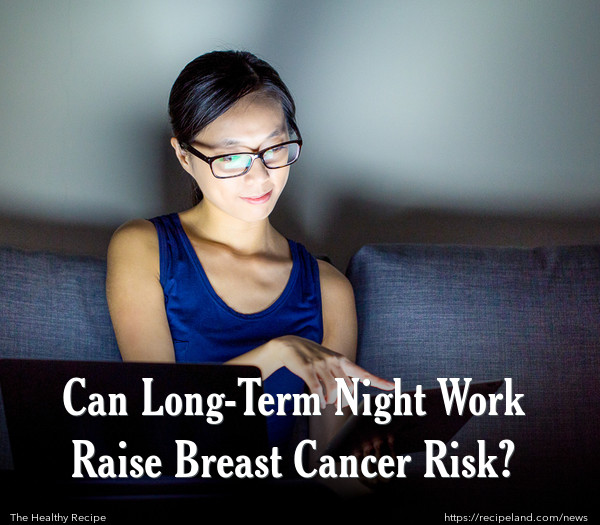A new study out of Canada suggests that women who work night shifts for thirty years or more might be doubling their risk of developing breast cancer.
A connection was found that links several decades of late night work with higher breast cancer risk, but there is no clear causal relationship between the two.
Researchers studied over 1,100 women without breast cancer, and another group of over 1,100 women who had been diagnosed with the disease – all under the age of sixty. Many different careers were studied, but medical professionals working late hours were found to be especially vulnerable to developing breast cancer.
Women in the study who worked nights or late hours for less than 30 years did not appear to have an increased risk.
This study, led by Dr. Kristan Aronson of the Queen’s Cancer Research Institute, took many other risk factors into account – from body mass index and lifestyle choices. Researchers also carefully documented each woman’s work histories and exact times of shifts that they worked.
The results stayed the same: women who worked late night hours for three decades or longer double their risk of breast cancer.
"There are only hypotheses so far about what could link long-term shift work to increased breast cancer risk. Some hypotheses are: disruption to the normal daily body rhythm, decreased melatonin, increased sleep disturbance and possible lower vitamin D,” stated Dr. Aronson.
It is not surprising that sleep disturbance and circadian rhythms that are out of balance for decades can have a negative impact on your overall health.
Melatonin is the hormone that regulates sleeping and waking patterns, and the body produces more melatonin when sleeping. Lower levels of melatonin may weaken the immune system – making women more susceptible to breast cancer and other diseases.
In addition to regular mammograms to detect early signs of breast cancer, Dr. Aronson encourages women not to work late night shifts for 30 years if possible.
If you do work late hours, it is important to get a full 8 hours or more of sleep everyday so that your body can recharge, create melatonin, and maintain a healthy immune system.
SOURCES: More information about breast cancer prevention can be found at https://www.breastcancerprevention.com.au/; Image courtesy of phanlop88 / FreeDigitalPhotos.netKristan Aronson, Ph.D., professor, public health sciences, Queen's Cancer Research Institute, Queen's University, Kingston, Ontario, Canada; Russel Reiter, Ph.D., professor, University of Texas Health Science Center, San Antonio; July 1, 2013,Occupational and Environmental Medicine, online










Comments